The looming grey and towering walls along the West Bank border are intimidating to look at.
It is more or less just one wall, with one purpose, to effectively shut out and restrict Palestinians from freedom of movement to Jerusalem and other parts of Israel and indeed overseas.
If you could imagine one wall running the length of Northern Ireland’s border you get the idea.
Walking into the checkpoint, it’s littered with leather belts, kids shoes, and sneakers along the narrow barricaded walkway in.
These are all items that have to be taken off going through the daily checkpoint. And that is if you are a Palestinian lucky enough to hold a permit to allow access to Jerusalem.
The situation is grim. It is bleak. The harsh reality of what Palestinians face on a daily basis is nothing short of apartheid. The wall is an enforcement of segregation under the pretense of security.
Entering Hebron, the Irish brogue must stand out. I’m stopped and asked my religion and told I cannot enter the paved main road in as I am a Christian. Instead, I resign myself to walking along another dirt track steeply down a hill.
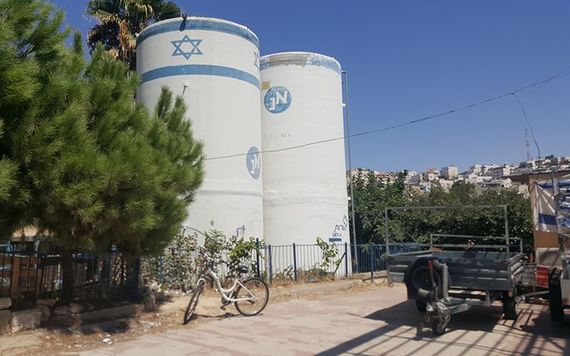
Water tanks supply the Israeli while Palestinian water supply are controlled.
But there’s not much to see. The area is divided into two: H1 controlled by the Palestinian Authority and H2 administered by Israel and is more or less a segregated area within a larger segregated area.
What once used to be a busy meeting point for Palestinian produce and business in the ‘70s is now derelict and ransacked. For protection against settlements, chicken wire was put over the roofs of businesses in the marketplace to stop the influx of oncoming rubbish from overhead settlers.
The star of David is sprayed across shutters on shop buildings to intimidate business owners and attempt to drive them out of increasingly Israeli settler areas. What historically is a meeting point of both religions is now a battleground for expression.
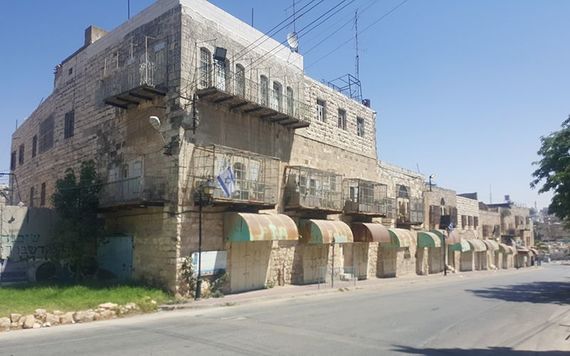
Closed shops in Hebron for Palestinian community, by Israelis.
And the segregation goes on. Within the Israeli apartheid system, there’s a hierarchy of importance indeed; Jewish nationals being top of the list, of course.
Then we have those Palestinians with Israeli citizenship. This luxury means that they can pay significantly high prices for a piece of paper allowing them to enter into Jerusalem for work, pay taxes and see no benefits of a system which they contribute to.
Then we have Jerusalem residents - separated into their segregated area zones; West Bank ID holders who increasingly have their land taken; and the Gaza Strip ID holders, lest we forget, who are being blockaded by land and sea and lacking basic services.
Even kids’ spades are on the blacklist of prohibited items allowed in and out. Because heaven forbid these are such a security threat when four young boys are killed in 2014.
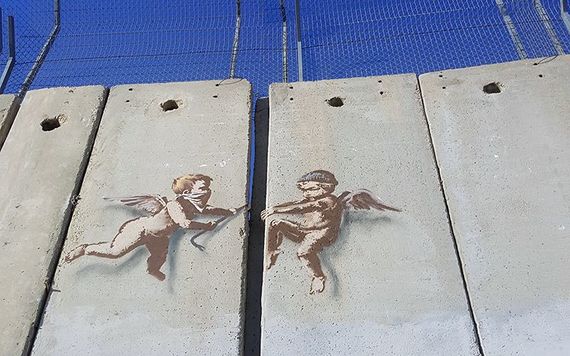
Graffiti of two angels ripping the wall apart along the West Bank border, in Palestine.
Lastly, on the scale of importance awarded people, we have the Palestinian refugees, both within Palestine and overseas.
With President Trump’s recent acknowledgment of Jerusalem as the capital of Israel and his relocation of the US embassy there, I think awareness is vitally important. He has shown more or less a complete disregard for existing boundaries and once more as we have seen a complete and utter redrawing of the map.
Yet again, this has been at the expense of Palestinians. I’d like to move the capital of Ireland to Belfast if that’s allowed, thanks very much.
Let’s talk about the decision to cut funding for refugees under UNRWA - The United Nations Relief and Works Agency for Palestinian refugees.
This is vital for access to basic human rights needed for survival.
Perhaps President Trump is unaware of the 8.1 million Palestinian people displaced and denied the right of return to date, 6.14 million of whom are 1948 refugees during “The Nakba” in which we saw the division of the land and the implementation of “Plan Dalet.” That very clearly stated that “there is no room in the country for both people … the only solution is the land of Israel, at least a Western land of Israel without Arabs.”
“The Nakba” period of 1948, thus becoming the largest and longest displacement of people in the world.
This permanent displacement is made solely achievable by the Israelis through their implementation in the 1950s of the “Law of Return” giving rights to Jewish people born outside the newly British-mandated state of Israel whilst denying non-Jewish native-born Palestinians the right to return.
Thankfully, with Mahmoud Abbas recent visit this week to the Tánaiste Simon Coveney, ahead of his trip to the United Nations General Assembly, we have seen an increase of one million to UNRWA totaling Ireland’s contribution to seven million this year.
Rewind. South Africa.1984. Or better yet, let’s look a little closer to home. Henry St, July 19 to be precise. An everyday supermarket store which sparked an effective boycott undertaken by Dunnes Stores workers, in particular, Mary Manning on the checkout, during an apartheid era. Boldy and bravely, she made a vital stand in her refusal at the checkout and handle South African fruit, which was later followed by ten other co-workers and later the wider community.
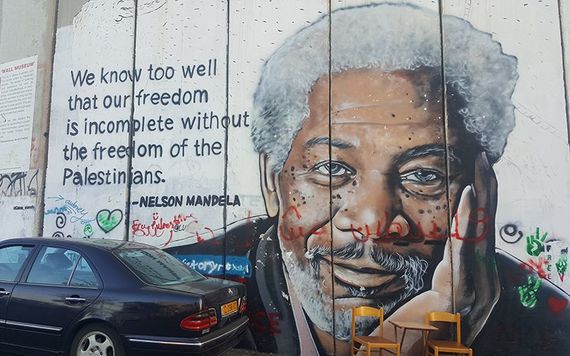
Graffiti of Nelson Mandela along the West Bank border, in Palestine.
As we stand today, as global citizens, we have a collective responsibility to cut relations with Israel until a long-term viable solution and steps are undertaken to put an end to the continued injustice against the Palestinian people.
The Boycott Divestment and Sanctions campaign is one such way to do this to hold Israel accountable for its illegal exploitation of resources on occupied land for profit.
We have seen the recent introduction of a bill prohibiting the importation of goods produced in settlements on Palestinian territories through the Seanad and let's hope this passed through the Dáil into law.
As a solo tourist, visiting Palestine was tough. As a Palestinian - life is next to unbearable on a daily basis. It’s time to band together as an international community and show solidarity.
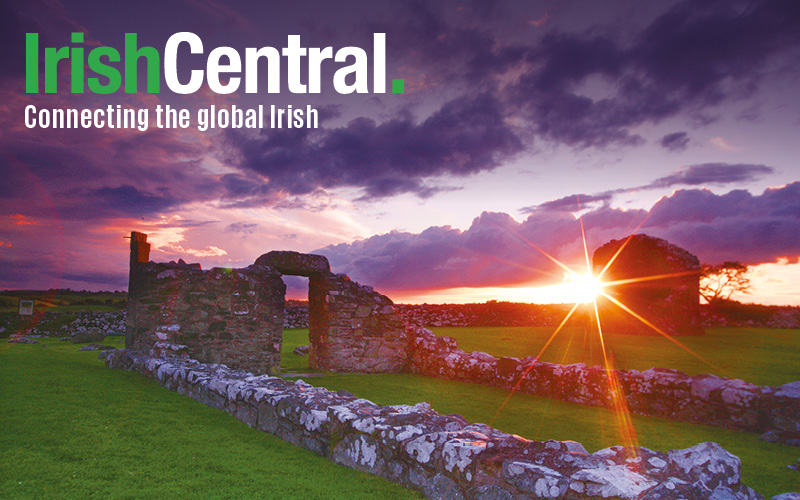



Comments